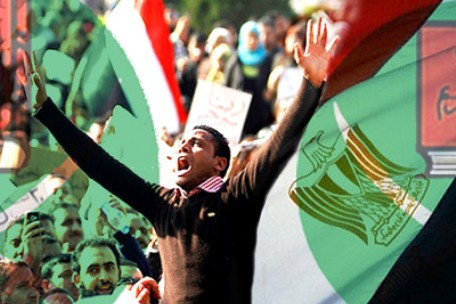Cognizance and Compromise: The Brotherhood in Egypt's politics

As the second round of parliamentary elections ended in Egypt, Islamists are still taking the lead, outdrawing the votes for liberals and secularists. The rise to power of the Muslim Brotherhood in Cairo-- along with electoral victories of Islamist parties in Tunisia and Morocco-- harks back to the formation of Islamic territories in North Africa. Nevertheless, what Islamists groups have presented so far is a moderate Islam, willing to cope with religious and political minorities in society. IRD has interviewed Seyyed Abdolamir Nabavi, senior researcher in the Center for Scientific Research and Middle East Strategic Studies.
IRD: Mr. Nabavi, what is your analysis of the results of the Egyptian parliamentary elections and its future direction?
SAN: The results of the first round of the election were foreseeable and predicted by the majority of analysts. This success is expected to repeat itself in the next two rounds, enabling moderate Islamists to form a powerful block in the Egyptian parliament. But don’t forget that their subsequent triumphs hinge upon their performance in the social and economic domains: if the Islamists of Egypt, Tunisia and Morocco fail to address the immediate economic problems, they will most likely lose the support of the voters. Perhaps one reason for the moderate Islamists’ victory in North Africa is the impressive economic record of the AK Party in Turkey.
However, Egyptian society is a multicultural one and rival ideologies and political parties active. Therefore, although Islamists have won the first round, they need the cooperation of other parties and groups to dominate the constitution committee. The Muslim Brotherhood has proved in recent months its willingness to cooperate with other groups, whether secular or nationalist. This approach reveals that the Muslim Brotherhood and its political branch, the Freedom and Justice Party, have a true understanding of the current political and social situation of Egypt and its foreign relations. Naturally, as long as the Muslim Brotherhood work with other groups and existing minorities closely, they can hope for the realization of their plans and slogans. In the meantime, the Brotherhood should appreciate the Army’s role. Any maverick action or ignorance of the army’s role can swing the votes.
IRD: You are saying that if the Muslim Brotherhood tries to overlook the army, it would lose a significant portion of its votes. Considering the importance of the army, if the Brotherhood comes to power, what will be the position of the army?
SAN: In recent months, we saw cooperation between the Muslim Brotherhood and the army. Even many of the critics of the Brotherhood accuse it of full alignment with the army, clearly illustrated in the referendum on constitution amendment in March 2011. While parties and groups such as al-Ghad, al-Wafd, al-Karama and the Egyptian Youth Movement called for a nay vote against the amendments, the Muslim Brotherhood along with the army effectively encouraged the Egyptian citizens to vote in favor of the amendments. Since then, cognizant of the army’s sensitivities, the group has not participated in many of the rallies held in al-Tahrir square, and has refused to sign any statements, aware of the fact that the army is not merely a military institution in Egypt, but it enjoys historical, political, social and economic roots.
IRD: If the Brotherhood comes to power, what will be the US’s position regarding the Islamists?
SAN: It is not yet certain that the Muslim Brotherhood can secure power, particularly as they announced that they would not introduce any person to run for the presidency, while at the end of the day, all Egyptian candidates need the Brotherhood’s approval. To resolve the existing uncertainties, the Muslim Brotherhood has begun serious negotiations with the US as part of their efforts to give assurance to foreign countries. They have also satisfactorily negotiated with Germany. All of these negotiations, if fruitful, can develop trust between trans-regional powers and in case of an Islamist victory, Egypt will be observing its obligations and its minorities’ rights. This way, they may go through the AK Party’s same experience. Economic prosperity is the key to their success, since most Arab countries are dealing with critical economic problems.
IRD: How will relations between the future Egyptian government and anti-US Muslim countries unfold?
SAN: They will likely take a very tentative approach towards these countries in order to advance their goals, without their Western allies and foreign partners being hurt. Technically speaking, like the AKP’s approach, Egypt will use these countries as cards to protect its political and economic interests and to stabilize its position in the region, without any of the sides being annoyed.

